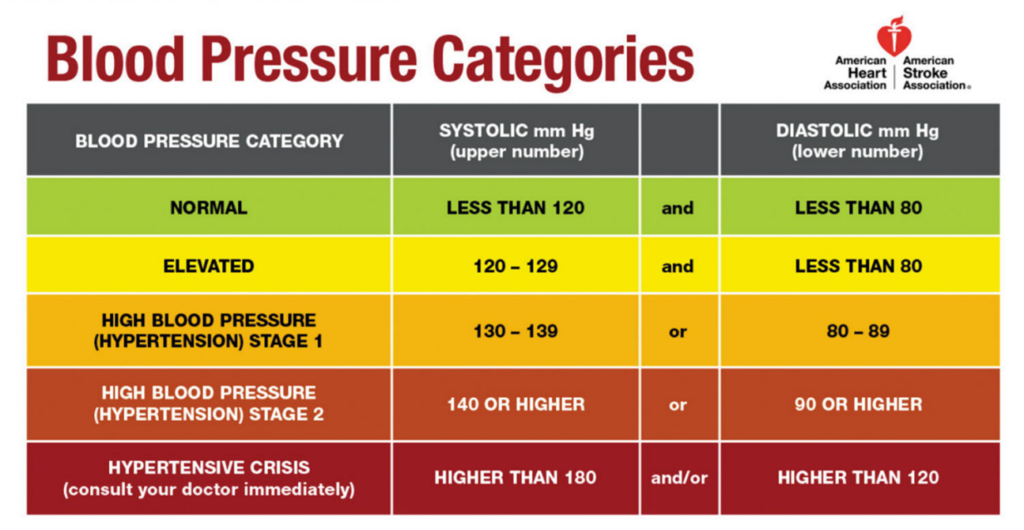
Doing Your Part for a Healthy Heart: Kansas City Expert Weighs In
Each February, millions around the country and the world indulge in a variety of sweet treats and salty snacks as they celebrate Valentine’s Day and gather in droves to watch the big game. And while it’s perfectly normal for your heart to go pitter patter at the sight of your true love or during the game winning drive, should that feeling persist, it might be time to visit your primary care physician. February is also American Heart Month – a yearly reminder of the importance of cardiovascular health.
Heart disease is the #1 cause of death for both men and women, but all is not lost. In fact, around 80% of heart disease is preventable. And there are many simple ways to practice preventive care without sacrificing a delicious bite of chocolate here and there. For more information, advice, and tips on how to best take care of your heart, we consulted Dr. Michelle L Dew, MD, FACC, an award-winning, board-certified cardiologist with AdventHealth Medical Group.
To start, Dr. Dew walked us through the most common risk factors for heart disease, and how, with just a little bit of consistency and care, you can protect yourself, your family, and your future.
Common Risk Factors
- Age
- Family history
- Past heart attack
- Diabetes
- Smoking/vaping
- High cholesterol
- Lack of exercise
Women: Hormones & the Heart
There are three times in a woman’s life where hormones can play a major role in heart disease:
- Menarche – First occurrence of menstruation.
- Pregnancy – Blood pressure changes, palpitations, etc. are common during pregnancy, but can also be signs of heart disease. If pregnant, talk to your physician to be aware of the warning signs.
- Menopause – Cholesterol and blood pressure increase after menopause begins (the average age is 51), heightening the factors that can lead to heart disease. See your primary care doctor to discuss treatment options.
While it’s true that some risk factors are impossible to change (past heart attack, family history, etc.), most of the influences that lead to heart disease can be modified. According to Dr. Dew, focusing on just a few important actions can drastically change your life for the better.
Dr. Dew’s take on the AHA’s Essential 8
The American Heart Association offers eight essential tips for a heart-healthy life. As the medical chair for Go Red for Women in Kansas City and a local cardiologist, Dr. Dew is more than familiar with these tips and offered her own expertise on these eight heart health game changers.
Tips For a Healthy Heart
1. Eat Better
Protein Power
Red meat is high in saturated fat, which can increase cholesterol, so if you must, go for lean cuts such as sirloin. And you can always substitute that steak for chicken. Fish are a power protein, packing tons of omega 3 fatty acids, which provide numerous health benefits. Don’t forget about those plant proteins, which include peas, beans, nuts, and lentils.
Reach for the Rainbow
When all else fails, nature’s rainbow of fruits and vegetables has you covered.
Red: Peppers, strawberries, tomatoes.
Orange: Peppers, butternut squash.
Yellow: Squash, bananas, spaghetti squash, lemons.
Green: Zucchini, cucumbers, lettuce (kale, romaine, spinach, butter), peas, broccoli,
Blue: Blueberries, blue corn.
Black: Cherries, black olives, black beans, raisins, plums, figs
Purple: Eggplant, concord grapes, blackberries, açaí berries, hubbard squash.
2. Be Active
The American Heart Association recommends getting at least 150 minutes of activity per week. Dr. Dew says starting small is a great way to introduce a new habit. All you need is 15-20 minutes a day in the beginning – work your way up from there.
The Little Things Add Up
- Park further away from the door.
- Take the stairs at work or to your apartment.
- Take a walk over the lunch break with a buddy.
- Move while watching TV.
- Play with your kids, grandkids, or your dog, daily.
Cardio vs. Weights
- Lifting weights is important for bone health and balance. Every little bit helps.
- “Ten thousand steps per day keeps the doctor away.” A pedometer, fitness monitor, or even your smartphone can track your daily steps. You’ll be surprised how quickly they add up!
3. Cut Out Tobacco
It probably won’t surprise you that smoking and vaping negatively impact your cardiovascular health. More than 4,500 chemicals are added to each cigarette, and some prefilled liquid pods for vape pens contain as much nicotine as a whole pack of cigarettes. Besides contributing to heart disease, smoking can lead to stroke, cancer, lung diseases, and diabetes. It can also harm those around you. Secondhand smoke causes stroke, lung cancer, and coronary heart disease in adults.
But if you’re a smoker, it’s not too late. Quitting improves heart health and reduces heart disease risk almost immediately. Within a year of cutting out nicotine, the risk of heart attack goes down, and within five years of quitting, the risk of stroke decreases to about the same level as someone who never smoked.
4. Maintain Healthy Sleep
When it comes to heart health, getting a good night’s sleep is essential, and consistency is key. The American Heart Association recommends 7-9 hours of sleep per night to help curb the risk of heart disease, stroke, diabetes, obesity, sleep apnea, and high blood pressure. Lack of sleep also leads to less productivity and efficiency during the day.
While some of us are blessed with the ability to fall asleep quickly, for many others, drifting off can prove difficult. Below are a few tips that prove more effective than counting sheep.
- Melatonin, magnesium, and hormones can contribute to sleep improvement. Your primary physician can provide recommendations based on your needs.
- Stay on schedule. Go to bed at the same time each night and get up at the same time each morning.
- Waking up to natural light trains the brain.
- Moving during the day is great but avoid exercise before bedtime.
- Minimize smartphone and tablet use prior to sleeping and just after waking.
- Keep your bedroom cool, dark, and quiet.
5. Watch Your Weight
So often, we get caught up with numbers when tracking and evaluating our weight and its impact on our overall health. But all body types are different, and contrary to popular belief, weight isn’t the best barometer. Talk to your doctor about what a healthy weight looks like for you.
No matter your weight, maintaining a regular exercise schedule, and if possible, getting in your 10,000 steps per day, will help to greatly reduce your risk of heart-related health complications.
6. Control Cholesterol
Cholesterol isn’t inherently bad, it’s a wax-like, sticky substance found in the cells of the human body, that your body uses to make vitamin D, hormones, and digestive elements.
There are multiple kinds of cholesterol: LDL (low-density lipoprotein) and HDL (high-density lipoprotein). HDL, sometimes referred to as “good” cholesterol, absorbs cholesterol in the blood and carries it back to the liver. Heightened levels of LDL, or “bad” cholesterol can produce too many lipids (fats) in your blood, can add to plaque, and restrict blood flow to your heart and brain.
While multiple factors like genetics, smoking, hormones (cholesterol increases after menopause with estrogen withdrawal), and age play a role, you can modify your cholesterol levels with exercise, diet, and prescribed medications.
7. Manage Blood Sugar
If not controlled, high blood sugar (hyperglycemia) can damage blood vessels and the nerves that control your heart, and lead to Type 2 diabetes. In Type 2 diabetes, glucose builds up in the blood instead of going into cells because the body develops a resistance to insulin, gradually losing its ability to produce it.
Diabetes increases the risk of heart disease by two times for men and by four times for women, and women are also at higher risk for diabetes associated blindness, kidney disease, and depression. Diabetes can affect the eyes, brain, heart, nerves, feet, legs, and kidneys.
What Controls Our Blood Sugar Levels?
- Glucose: The carbohydrates and sugars in what we eat, and drink turn into glucose (sugar) in the stomach and digestive system.
- Insulin: A hormone made in the pancreas that helps the body’s cells take up glucose from blood and lower blood sugar levels.
Know Your A1C
An A1C test is a simple blood test that healthcare providers use to detect prediabetes, and diagnose Type 2 diabetes. The test measures the average amount of glucose in your blood over the past three months. Next time you have an appointment with your primary provider, ask about getting tested. It’s never a bad thing to be prepared!
8. Understand Blood Pressure
Elevated blood pressure – otherwise known as hypertension – makes extra work for the heart to move blood around the body, ages blood vessels prematurely, and causes a higher risk of stroke, heart attack, kidney disease, vision problems, and blindness.
The risk of hypertension increases as you age. Men over 65 are much more likely to have high blood pressure, while the risk for women increases after menopause (~ age 51).

Ways to Fight Back
- Eat a well-balanced diet that’s low in salt.
- If you do drink alcohol, do so in moderation.
- Exercise regularly.
- Reduce stress as much as possible.
- Maintain a healthy weight.
- No smoking/vaping.
When and Where Should You Go for Health Care?
Visit Your Primary Physician When:
The issues you’re experiencing are a bit out of the ordinary, and are persistent but not life-threatening, it may be time to make an appointment with your primary care physician. But you don’t need to have chest pains for a reason to speak with a professional. The next time you visit your primary care provider, speak with your doctor to learn more about warning signs, preventive care, and advice.
Visit Your Cardiologist When:
You’re someone with known heart disease or with a past condition such as bypass surgery, a known irregular heartbeat, a stent, or a past heart attack. Conferring with a cardiologist might be the right next step. Your primary care doctor can help refer you to the proper local expert.
Visit the ER When:
The issues you are experiencing are big, bad, and different. If you’re dealing with immediate pain that is extremely out of the ordinary, it may be time to head into the nearest emergency room.
Dr. Dew’s #1 Piece of Advice
JUST MOVE
According to Dr. Dew, the most effective way to fight heart disease is simple: just move! Moving your body every day (around 20 minutes per day), can do wonders for your short- and long-term health, helping reduce the risk of heart disease, and benefiting your mental health. Moving can be as simple as a short walk, running a few errands, playing with the grandkids, taking your dog around the block, or even a focused daily exercise regimen. Just keep yourself moving. “Use it or lose it,” Dr. Dew says.
You don’t need to wait until February rolls around each year to pay attention to heart health. Cardiovascular wellness should be an everyday focus, and the steps you take today could lead to a longer, healthier life doing those things you enjoy most. A little love goes a long way!
To learn more, visit these sites:
World Heart Federation: https://world-heart-federation.org/what-we-do/prevention/
Centers for Disease Control and Prevention:
- https://www.cdc.gov/heartdisease/women.htm
- https://www.cdc.gov/heartdisease/american_heart_month_patients.htm
American Heart Association:
- https://www.heart.org/en/health-topics/high-blood-pressure/the-facts-about-high-blood-pressure
- https://www.heart.org/en/healthy-living/healthy-lifestyle/lifes-essential-8


